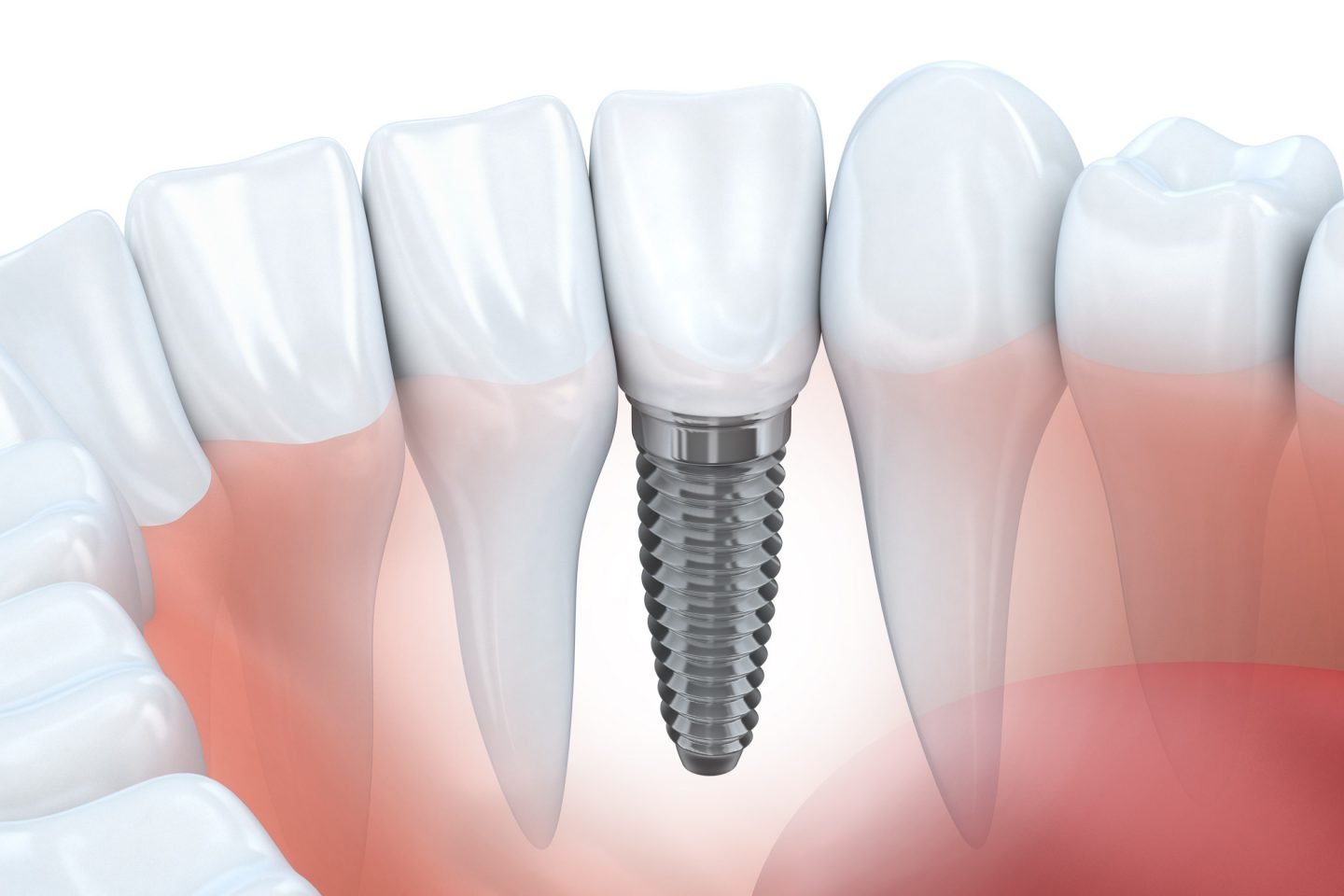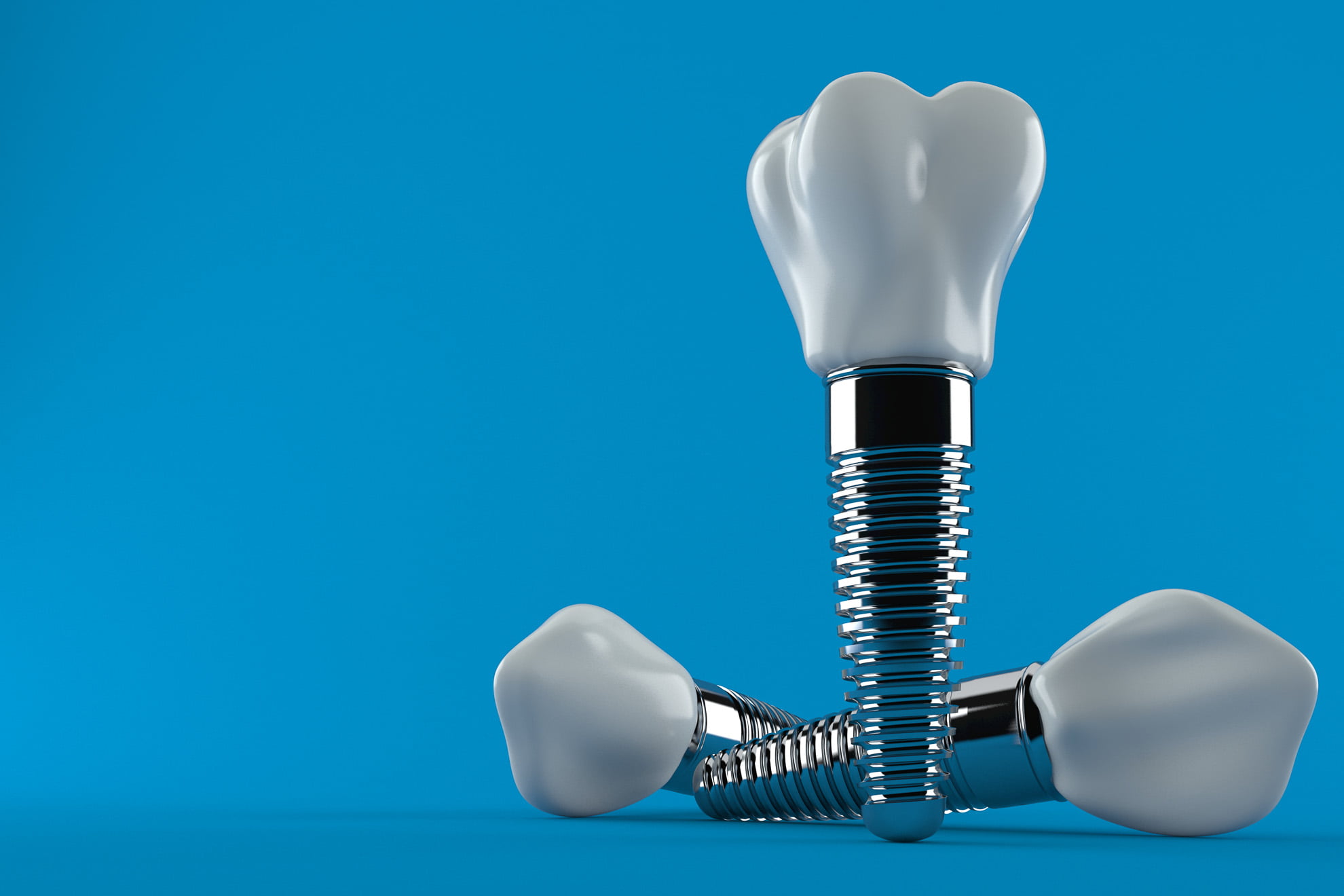Dental implants are a piece of titanium or other materials that looks like a screw. It is put into the jaw where the missing tooth’s roots were.
Why are dental implants needed?
- To replace one or more missing teeth without damaging the adjacent teeth.
- Stabilises uncomfortable dentures.
- As a solution for people who are missing a single tooth, or several teeth or to replace an entire jaw of teeth either by anchoring a full fixed mouth of teeth on a denture or to a fixed bar that is attached to the implants. (refer to videos)
- Allows people to replace their unhealthy teeth with healthy options, which restores their confidence and functionality
How many appointments do you need for implants?
Prior to commencing implant treatment, you will need at least two appointments with your dentist. The reasons for these appointment is to discuss the best treatment options for you and the potential complications. The cost of the treatment and consent will be discussed in detail within these appointments.
Required radiographs (x-rays) are taken to allow safe and accurate planning. In addition, digital scanning, or impressions, along with intraoral photographs are taken. This will allow the dentist to discuss all the options available to you. It is crucial to ask all of the questions you have and express all of your concerns.

What is involved in the placement of dental implants?
The procedure involves placing one or more pre-determined titanium screws in the jaw bone. The location and size of the implants are all determined prior to the surgery day. Please refer to our website videos for more information.
How painful is the procedure and how much pain is involved afterwards?
During the procedure, local anaesthetics will be used. The implant procedure is a very delicate and accurate procedure, and therefore, patient comfort is crucial to us.
Post-operatively (after surgical placement), we usually prescribe the adequate antibiotics and possible painkillers depending on the procedures. We recommend that you plan to have a minimum of one day off intense physical activity to allow healing and to reduce the risk of infection.

Could the procedure be done under sedation?
Absolutely, depending on your concerns, we can perform the procedure under either oral sedation, twilight or I.V sedation.
Twilight sedation means you will fall asleep during the procedure, you won’t have any memory of the event. Please ensure you organise a driver and a carer to look after you for the remainder of the day. Please refer to the twilight sedation section of our website. We have a wonderful dentist who is a qualified dental sedationist.
Do dental implants fail?
Dental implants usually have a long term and high success rate, but like any other options, limitations do exist, and failure can occur.
Some of the factors that reduce the success rate are:
- Smoking
- Poor oral hygiene
- Chronic systemic disease
- Large chewing forces on a newly placed implant
While all the above may have an effect of the success rate, they are not contraindications for dental implants. Regular follow ups and hygiene appointments are absolutely crucial to ensure the health of your implants.
What are the main contradictions to dental implants?
- Uncontrolled systemic disease, such as diabetes, osteoporosis, pulmonary issues.
- Patients receiving high doses of infusions for multiple myeloma and severe osteoporosis.
- Patients receiving chemotherapy drugs.
- Bleeding disorders.
- Immune suppressive disorders.
- Age of people younger then approximately eighteen years of age.
- Bone disorders such as Paget’s disease.
Your health and safety are paramount to us and therefore any issues we have related to your medical health are discussed with your medical practitioner.
Please get in contact
If you have any questions or would like more information about dental implants then please fill in the below form and we will get back to you at a convenient time.
We are part of Smile On Clinic
